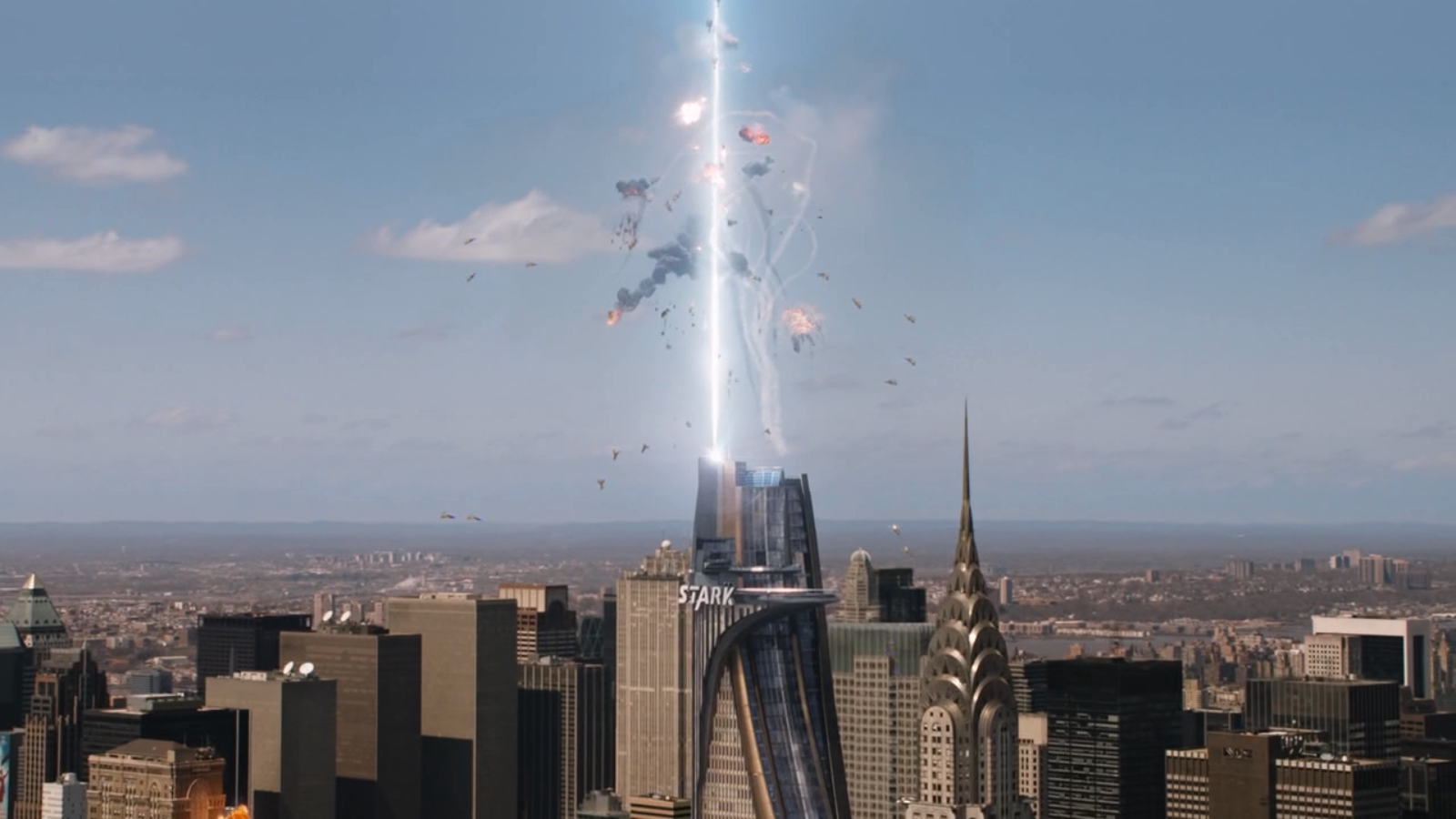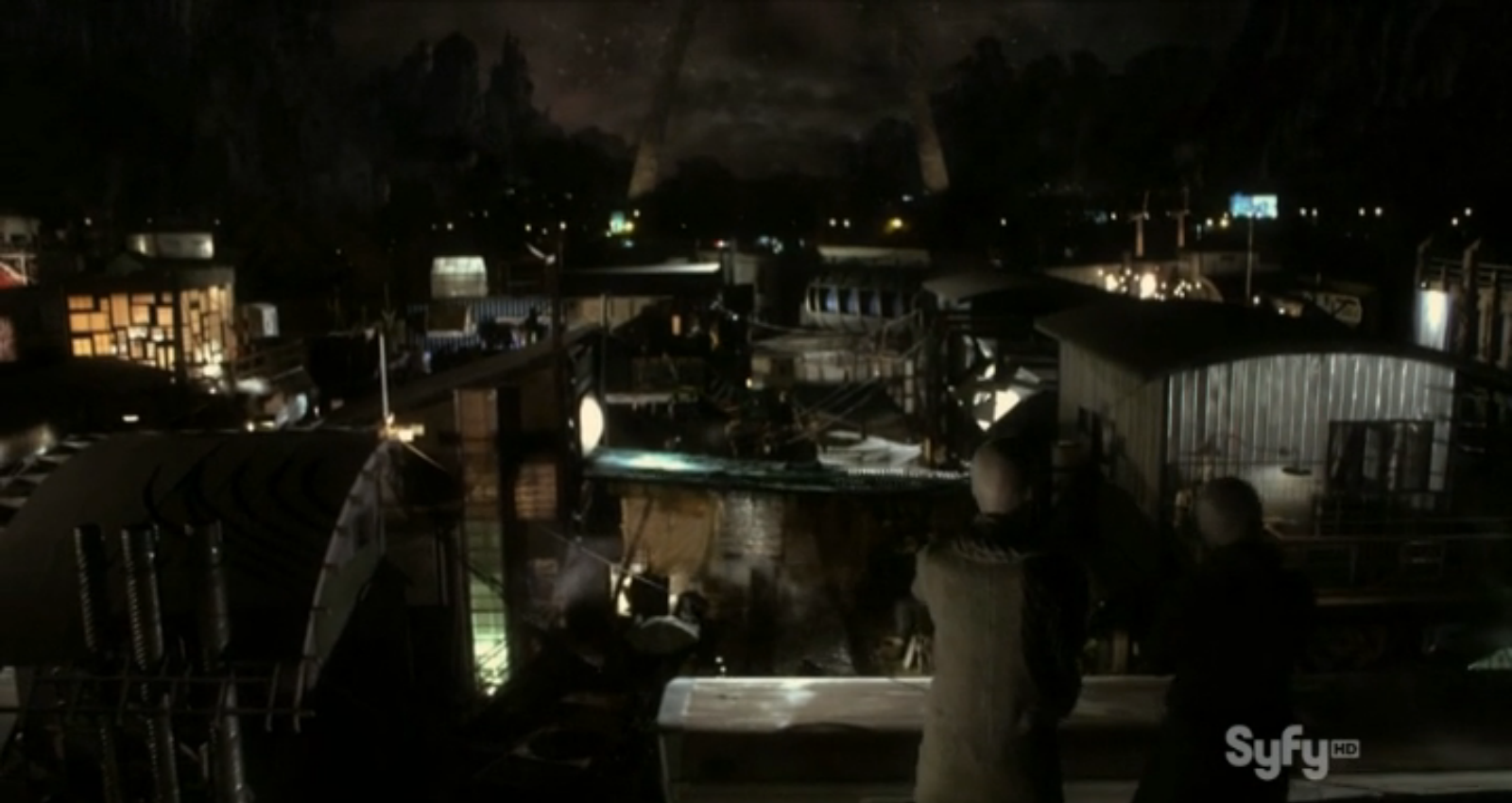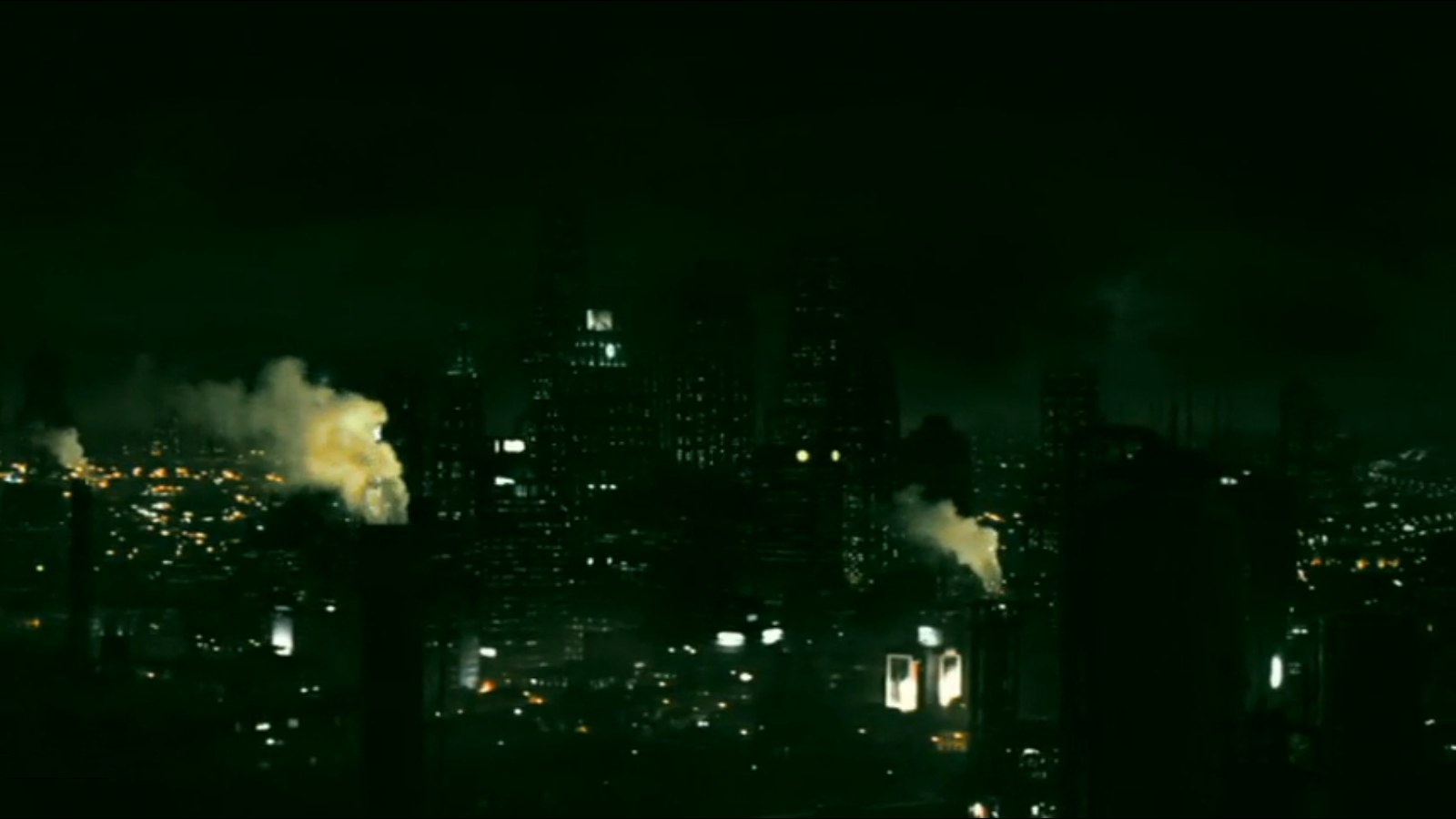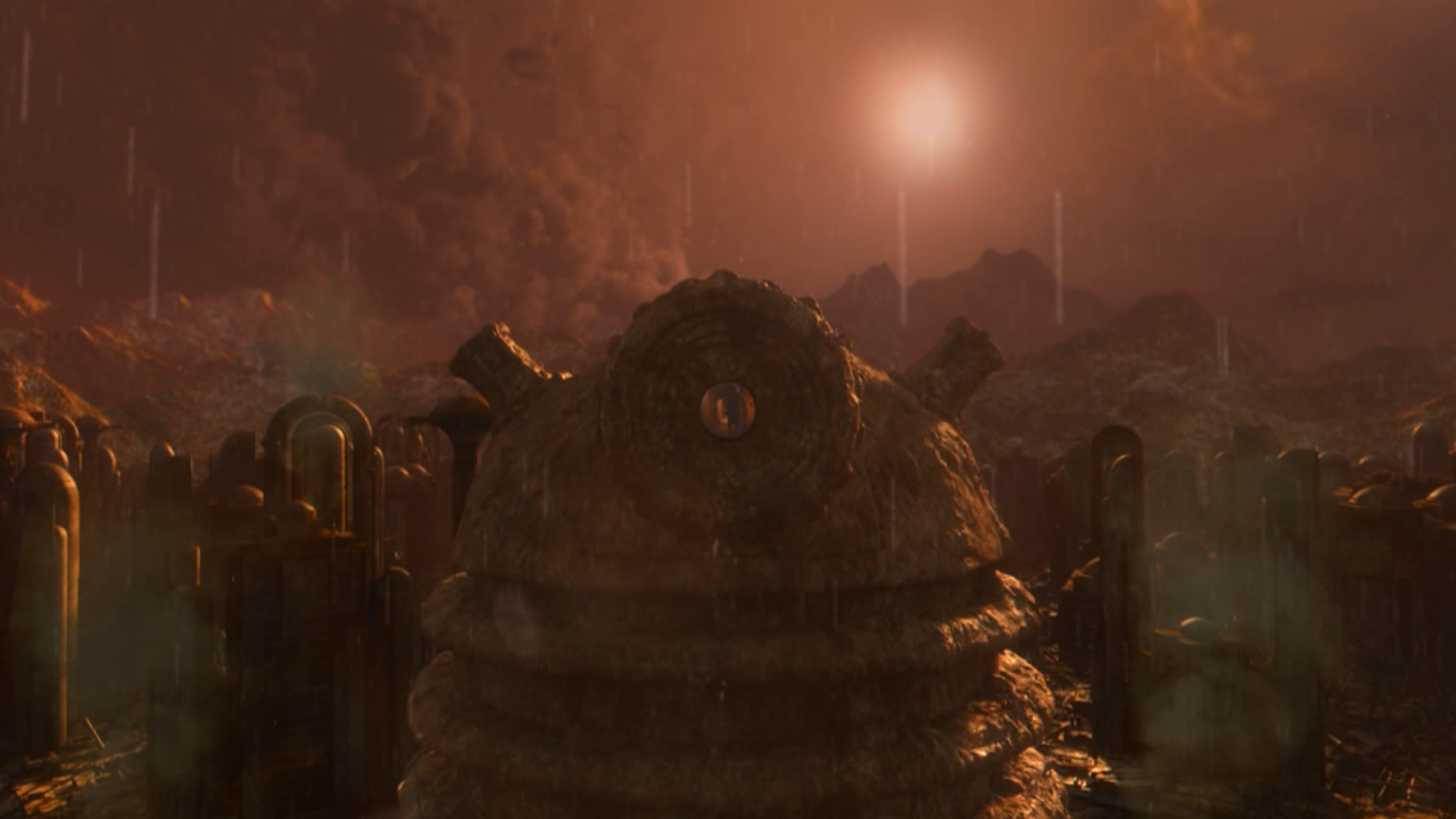4 Awful TV Dystopias You Wouldn’t Want to Live In – Friday Four
- October 3rd, 2014
- Posted in Lists
- Write comment
 Watching TV can be a very enjoyable experience, but have you ever considered what it would be like to live a life like your favorite character’s? While we tend to look up to our heroes and hope to emulate them, if most people really thought about it very few would want to be them. The kind of world that TV protagonists live in is often an awful one full of crime, corruption, enormous alien threats and facing death on a daily basis. Take Agent Coulson, for example–he got stabbed by a Norse god and forcibly brought back to life, forever changing who he is. The organization he dedicated his life to is in shambles, and now all the responsibility for trying to rebuild it is on him, including the lives of both the people under his command and of the innocents caught up in the crossfire. But it wouldn’t just suck to be Coulson, or part of SHIELD; imagine being an ordinary Joe in the Marvel Cinematic Universe, left powerless while gods and supersoldiers do battle for the fate of the planet. It’s downright horrifying, when you think about it.
Watching TV can be a very enjoyable experience, but have you ever considered what it would be like to live a life like your favorite character’s? While we tend to look up to our heroes and hope to emulate them, if most people really thought about it very few would want to be them. The kind of world that TV protagonists live in is often an awful one full of crime, corruption, enormous alien threats and facing death on a daily basis. Take Agent Coulson, for example–he got stabbed by a Norse god and forcibly brought back to life, forever changing who he is. The organization he dedicated his life to is in shambles, and now all the responsibility for trying to rebuild it is on him, including the lives of both the people under his command and of the innocents caught up in the crossfire. But it wouldn’t just suck to be Coulson, or part of SHIELD; imagine being an ordinary Joe in the Marvel Cinematic Universe, left powerless while gods and supersoldiers do battle for the fate of the planet. It’s downright horrifying, when you think about it.
And while there are some exceptions (I think we all want to live in the Star Trek Federation. Replicators and holodecks, anyone?) TV is littered with these kinds of unpleasant worlds. So here are 4 of the worst universes to live in that have ever been shot on camera.
4. Defiance
Okay, so maybe life in the Earth of Defiance isn’t exactly ideal to most, but there are numerous indications that Nolan sure was excited for the changes so he could play out his fantasies of being the roguish hero, as Berlin rightly called him out on. But the reality of life in Defiance is a world that’s alien to both human and Votan alike, one where the survivors number in the low millions. Horrible monstrosities like the hellbugs stalk the nightmarish landscapes, twisted and rendered utterly uninhabitable by malfunctioning terraforming technology. Huge sections of the planet are both unlivable and unreachable; no one seems to have much knowledge of what the state of the world is beyond North and South America. There are the Arkfalls and “razor rain,” too, where the remnants of orbiting structures crash down in deadly incidents, which also make it impossible to leave Earth. And all this is without even getting into the genocidal AI that factored into season 2.
3. Firefly
This is one that gets pretty heavily romanticized, which is especially easy to do given how little of the world we actually got to see. But the world of Firefly is not all about cowboy adventures and roaming around the Verse in your little ship with your friends. Let’s not forget that Mal and Zoe were on the losing end of a civil war, which resulted in the less-than-benevolent Alliance taking control of most of the system where the show takes place. Everyone’s only out there in the first place because they screwed up the “Earth-that-was” so bad that the only way for humanity to survive was to take to the stars. No aliens, nothing fun to discover out there; just barren worlds where they can eke out some form of existence. They don’t even seem to have faster-than-light travel (there’s every indication that all these worlds are located in just one very complex stellar system).
And of all the areas that humans inhabit, the only “Free” regions are the outer worlds, which are mostly left alone by the Alliance because the Reavers take care of those for them. When you factor in the revelations from the movie Serenity, too, it becomes worse, as it’s clear that River is far from the only person that the Alliance has purposefully abused and mistreated for their own benefit. Pretty much the only way to live a decent life in the world of Firefly is as a wealthy landowner on one of the core worlds and never leave it, but even that’s no guarantee that the Alliance won’t some day come to take away your daughter for their own ends. To quote Jayne, it’s one “crap-heeled ‘verse,” alright.
2. Charlie Jade
This little known South African series showcases three parallel universes, and the eponymous main character is from the so-called “Alphaverse,” a Blade Runner-style dystopian world of megacorps and a strict caste system. The Alphaverse does more than just take its cues from Blade Runner, however–it turns the dial up to 11. The world is carved out between 5 megacorporations, with each one more or less dominating an entire continent (Africa being in the hands of Vexcor). But these megacorps can’t even keep their dystopia running properly, and as they squeeze the last drops of resources out of the Earth, they turn their attention to other worlds. Their target, the Gammaverse, is an ecologically sound version of Earth, and Vexcor seems to find it unfair that other people have lives less shitty than theirs. By trying to steal resources from the Gammaverse, they’ll have to destroy the world in between, the Betaverse, better known as our world. And almost no one here knows it.
While life in the Alphaverse is tough, don’t assume that Gamma is a utopia. From the little we see of it, the Gammaverse is a world where nature is cared for, but corruption and manipulation of society on a massive scale are running rampant. And I don’t think I need to tell anyone how our world is. Once Charlie disappears, the views we get of the Alphaverse only get worse as his girlfriend is relegated to the lowest class and repeatedly abused. But hey, at least they don’t let people die of fully preventable diseases there (it’d be a waste of a perfectly good wage slave).
1. Doctor Who
One of the problems with introducing time travel in a show is that it starts to bring some heavy philosophical questions with it: is there free will, or are things predetermined? If you can travel to the future, doesn’t that mean that everything is already set in stone, and our choices today are meaningless? Doctor Who usually dances around these issues, mostly because it’s not supposed to be that kind of a heavy show. And it does so by establishing a mix of fluctuating, malleable futures and “fixed points,” where major events take place that simply cannot be averted no matter how hard you try. But there are recurring themes that show up which paint a grim future for humanity: the Daleks take over Earth all the time, sometimes for hundreds or thousands of years before the Doctor can show up to stop them. There are all these alien forces out there, many of which exist and pose a threat even in the modern day, like the Cybermen, or the 456 from its spinoff Torchwood, the latter of which the Doctor never came to defeat. Add on to that things like the Time War, where universal destruction was a distinct possibility at multiple points and the sheer incomprehensible size of the conflict, and the universe at large becomes a terrifying place. Weeping Angels and the Silence roam free, and still greater horrors (the literal devil himself?) are lurking and waiting for their chance to strike. But even taking all that out of the picture, things don’t look too bright for us.
Many of the human governments we see in the future are just as corrupt, if not more so, than today, and often take the form of empires and dictatorships. Sure, the name might be different, or we’ll see different instances of it, but what started out as simple continuity nods to the classic series has grown to give the impression that despite all the changes to the timeline we’ve seen (both caused by the Doctor and not) there’s no way to avert this. Humanity is doomed to continually revert to barbarism, reviving practices of slavery and fascism until almost the end of the universe itself. Not what you expect out of a family show.
There are plenty more TV Dystopias out there, but I thought that these four gave a good overview of the different types popular in sci-fi. Feel free to name your own!








No comments yet.